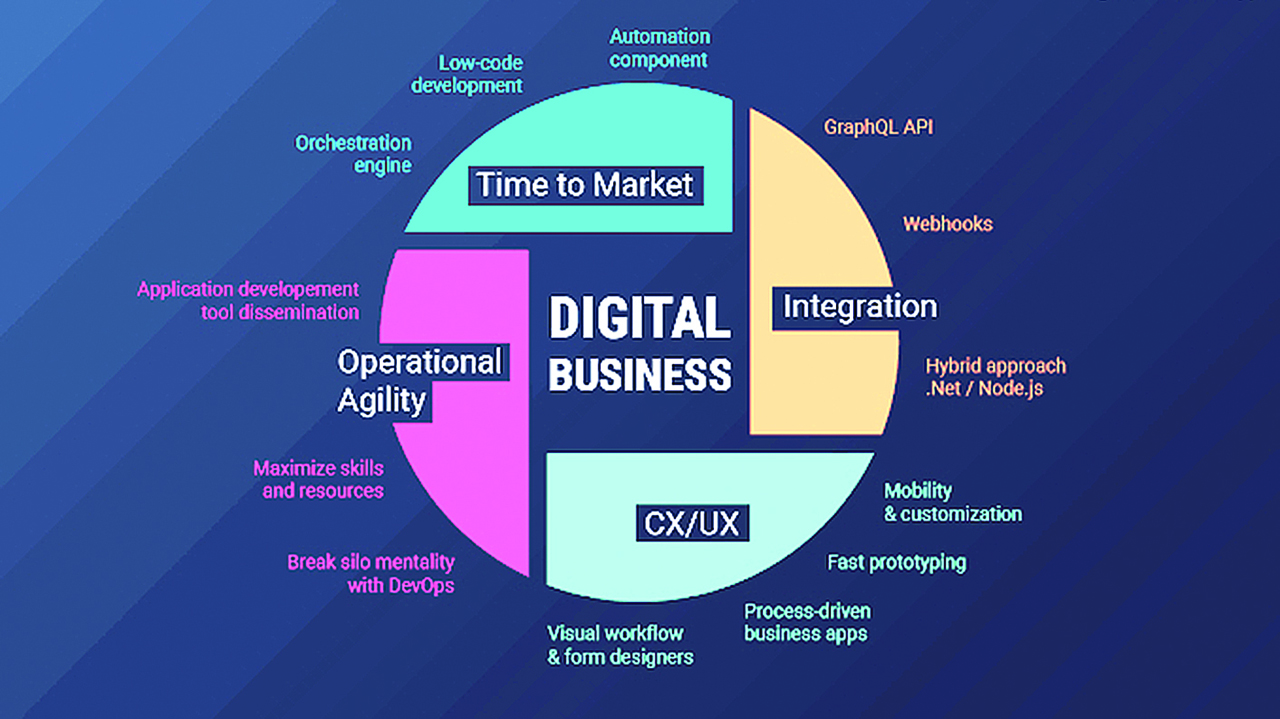 Digital transformation represents an opportunity for improving productivity and growth by enabling innovation and reducing the costs of a range of business processes.
Digital transformation represents an opportunity for improving productivity and growth by enabling innovation and reducing the costs of a range of business processes.
Digital technology is helping to drive growth, especially in the promising non-oil sectors, from media and entertainment to finance and fast-moving consumer goods. But while access to mobile and internet has increased steadily, it remains unequal.
Low-income citizens and those dwelling in rural and semi-urban regions struggle to access these increasingly powerful services.
Despite the slow impact in aggregate productivity data, digital transformation is impacting productivity in individual firms and increasingly also in certain industries.
But larger impacts will emerge as digital transformation evolves and digital technologies, business models and practices diffuse to a greater number of firms and industries, and as digital-intensive firms gain market share.
To accelerate digital penetration, KPMG Professional Services have stressed the need to deepen Nigeria’s financial inclusion. Nigeria is Africa’s biggest economy, home about 200 million people, making it the continent’s most populous nation.
Digital technology is essential for Nigeria’s economic diversification and access to Internet and mobile has improved remarkably, helping to drive non-oil GDP growth
At a news conference in Lagos, to announce the 2019 KPMG Digital Summit, the firm argued that the country must adopt a lower cost to service model to enable low-income earners to have access to digital technology.
Specifically, Partner/Lead, Digital Transformation, KPMG in Africa, Boye Ademola, said Nigeria is certainly a leading destination in Africa in technology perspective, in terms of the use of technology and its application, but added that there is still much to do particularly in terms of penetration
“Nigeria’s financial inclusion can be better, that is one of the things we can do with this technology. How do we bring more people and make them more financially-included? If you look at things like the cost to serve, that also is something that technology can help with.
“Because of the different segments of our population, not everyone can afford to pay a premium, and therefore, we need to look at the cost to serve model to be able to serve the lower end of the ladder.”
Also speaking, Partner, Management Consultant, KPMG in Nigeria, Segun Sowande, pointed out that the government can help harness digital technology, and ensure that these impacts emerge by engaging in supportive and appropriate policy actions.
According to him, policies should promote successful diffusion to unleash the potential of ICTs and digital tools for firms to increase productivity
“Opportunities to leverage digital a lot more, is going to be in the areas of human capital development like the whole educational system, how do we use technology to enhance healthcare delivery, these are areas that can have a significant impact on us as a country.
“The more we can come up with the right type of solution that will bridge the gap in those spaces; the more it would make a significant impact in terms of our social ecosystem. These are areas to be explored as we go into the future.”
The Associate Director, Deal Advisory, KPMG in Nigeria, Dolapo Adeosun, said a lot of investors are looking at Nigeria’s fintech as a viable investment hub, noting that a lot of capital is currently chasing investment in technology.
“Two years ago, maybe the focus was on payment, but now we see quite a lot of investment going into lending, we talk about financial inclusion, investment in technology.
“There are lots of capitals chasing that, there are different stages. A few of our fintechs are start-ups, but we have started seeing a lot of them merge and become bigger and capital is being invested into these businesses.”



